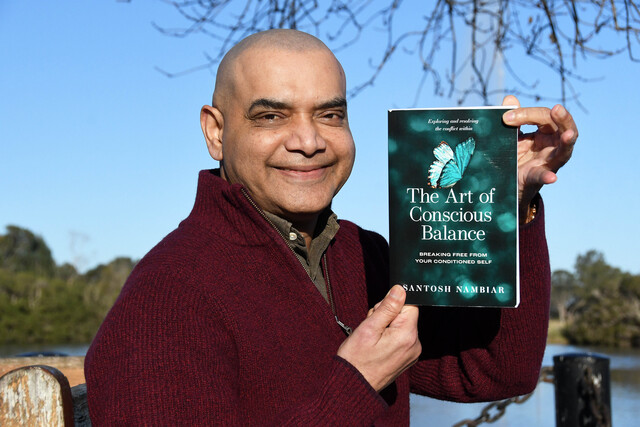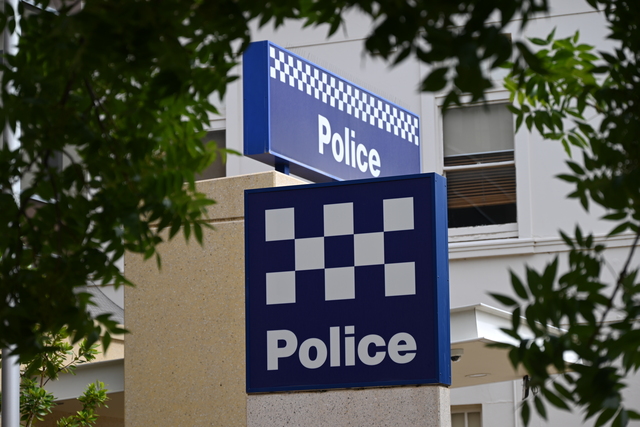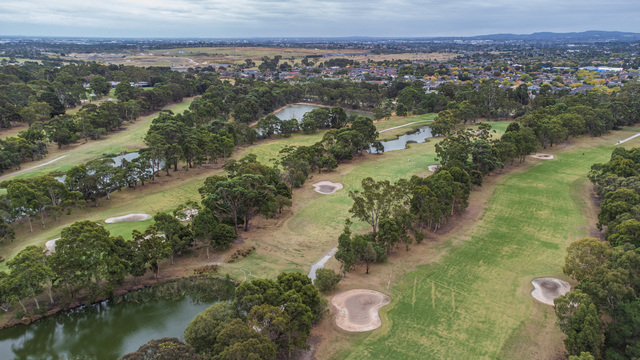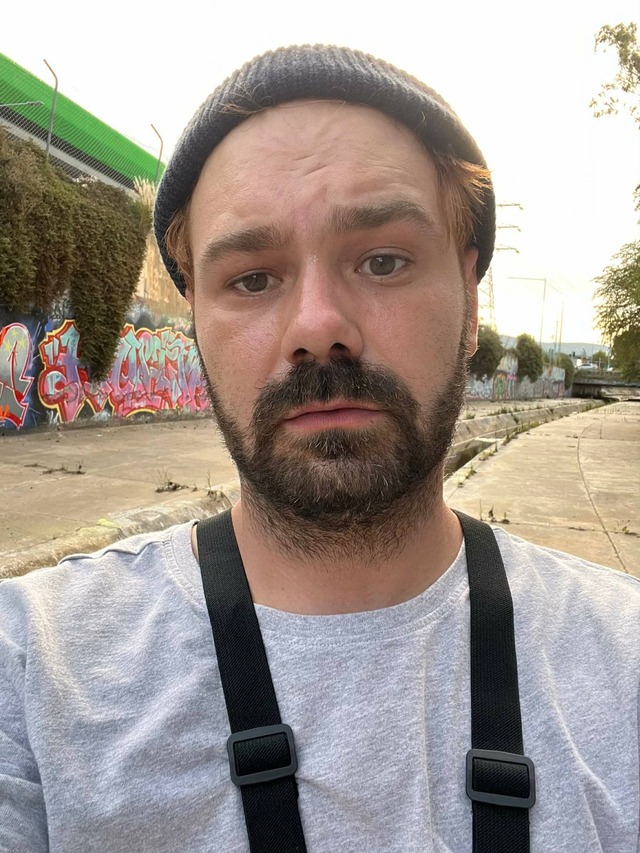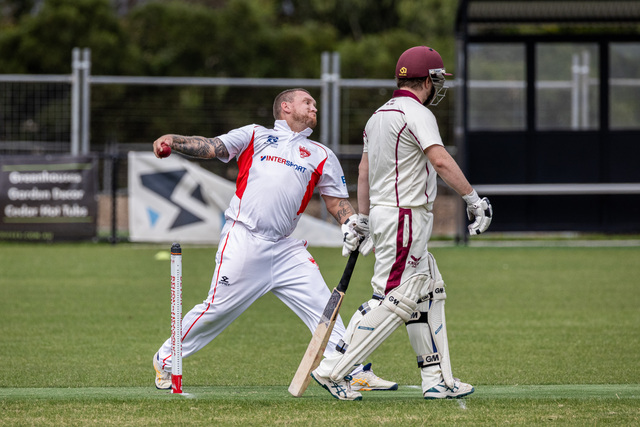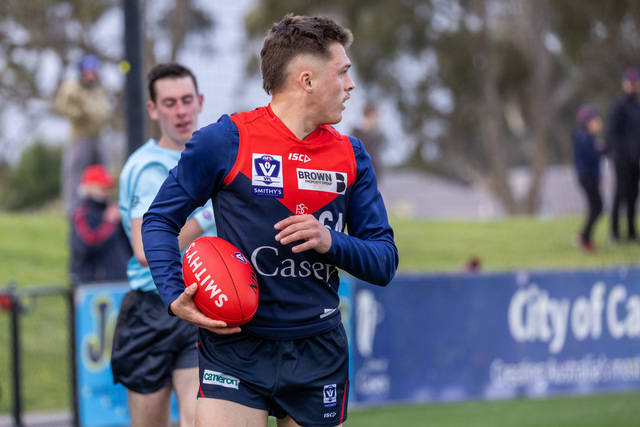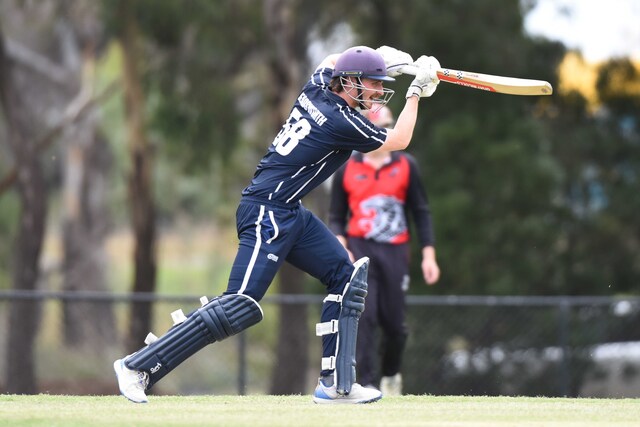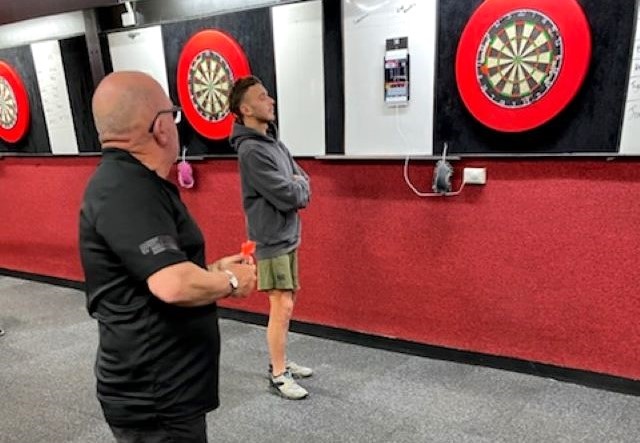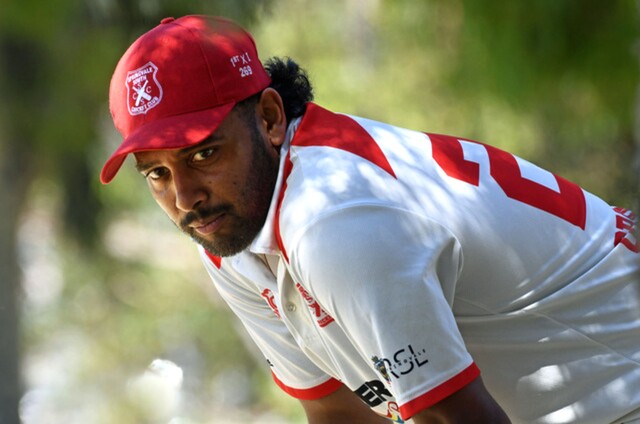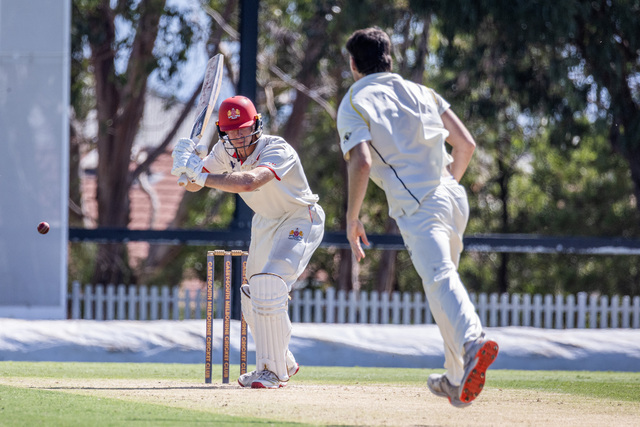Misdiagnosis is like life playing a trick on you. It opens a crack but allows lights in.
Clyde North’s author Santosh Nambiar was misdiagnosed with cancer two decades ago. His doctor said he would not survive a year. In those several months when he thought he was waiting to die, he started to wonder who he was, a good question in extremis.
“I started doing a lot of work on myself and understood this concept. I started practising a state of awareness for myself,” he recalled.
The false alarm brought out the second chapter of his life: a meditation and mindfulness journey. The biotech scientist carved out a new trail which eventually led to his latest breakthrough The Art of Conscious Balance. The book has recently won the Panorama International Literature Festival 2024 in Greece.
“I have been writing since around 2000 and I have published quite a few books, but this one has been a significant book in my writing career,” Santosh said.
“It’s almost two years now and it got some good reviews and people have actually accepted it.”
The book introduced two concepts of contrast: intellect and intelligence.
“Intellect is the knowledge that we have acquired during our upbringing. We store it in our brain in the form of memory which we can retrieve. The intellect is very limited in resources,” Santosh said.
“I am comparing that to a small flickering candlelight. If you are plugging into that intellect, the outcome is going to be very limited in terms and there is stress, burnout, anxiety, fear, confusion and everything that we are facing in this day and age.
“If you are able to plug into something bigger like what I call intelligence, you can use unlimited knowledge.
“You can elevate your life from a survival mode to that of thriving and flourishing and going beyond your limited potential and exploring more things in life.”
Having consciousness and awareness is what Santosh believes will allow intelligence to come in and there are techniques to achieve that, which is what The Art of Conscious Balance is all about.
“It is the nature of the mind to wander but it is our innate nature to be an observer of this mind wandering into the past or future, but we forget that,” he said.
“Now we need to remind ourselves to observe this mind wandering. There’s nothing you can do with mind wandering. You can’t just control it, but if you just observe it, it comes back.
“The observation is the awareness.”
The misdiagnosis interlude somehow elicited an epiphany for Santosh that he had lost that awareness for a long time.
“I got into one of the biggest multinational companies in the biotechnology industry. I was climbing up the corporate ladder and trying to achieve quite a few things in life,” he recalled.
“I was constantly running with baggage, living out of a suitcase. One day, I’ll be here in Frankfurt. The other day, I’ll be probably in San Francisco.
“There were a lot of things happening, ego, arrogance, and materialistic things, and I want to achieve this, and I want to show people that I can do this. That created a lot of stress and anxiety.”
The cancer episode certainly put him through a lot of intense traumas, but realisation came through afterwards.
“In The Art of Consciousness, it was all about how I bumped into this and my journey, and how this realization dawned on me. I’m talking about the balance and those kinds of things,” Santosh said.
A sequel is coming not in the long future.
“In the new book, it is all about the techniques to reach the awareness,” he said.
Running a biotech company, Santosh now shares much focus on meditation and mindfulness education. He writes books. He delivers workshops in the libraries. He flies to other countries to give lectures.
“I bumped into this in a traumatic way. I don’t want others to be in that,” he said.

